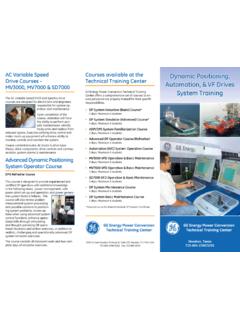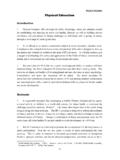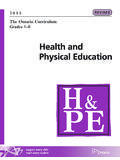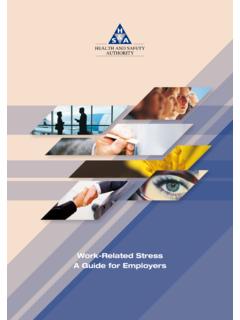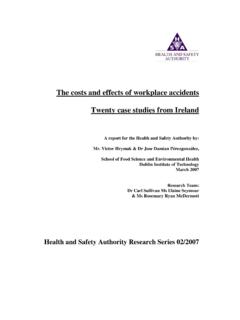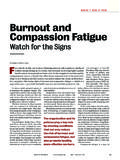Transcription of Salmon, P Effects of Physical Exercise on Anxiety ...
1 Salmon, P. Effects of Physical Exercise on Anxiety , Depression and Sensitivity to stress - A Unifying Theory. Readers are reminded that copyright subsists in this extract and the work from which it was taken. Except as provided for by the terms of a rightsholder's licence or copyright law, no further copying, storage or distribution is permitted without the consent of the copyright holder. The author (or authors) of the Literary Work or Works contained within the Licensed Material is or are the author(s) and may have moral rights in the work. The Licencee shall not cause or permit the distortion, mutilation or other modification of, or other derogatory treatment of, the work which would be prejudicial to the honour or reputation of the author. Salmon, P (2001), ' Effects of Physical Exercise on Anxiety , Depression and Sensitivity to stress - A Unifying Theory.', In Clinical Psychology Review, , 1, , , ISSN: 0272-7358.
2 This is a digital version of copyright material made under licence from the CLA, and its accuracy cannot be guaranteed. Please refer to the original published edition. Licenced for use at University of Derby for the Current Issues in Business Psychology course(s). running during the period 01-SEP-07 to 31-AUG-08. Permission reference: NESLI AGREEMENT. Clinical Psychology Review, Vol. 21, No. 1, pp. 33-61, 2001. Copyright 2000 Elsevier Science Ltd. Printed in the USA. All rights reserved 0272-7358/0l/$-see front matter PII S0272-7358(99)00032-X. Effects OF Physical Exercise ON. Anxiety , DEPRESSION, AND SENSITIVITY. TO stress : A UNIFYING THEORY. Peter Salmon University of Liverpool ABSTRACT. Until recently, claims for the psychological benefits of Physical Exercise have tended to precede supportive evidence. Acutely, emotional Effects of Exercise remain confusing, both posi- tive and negative Effects being reported.
3 Results of cross-sectional and longitudinal studies are more consistent in indicating that aerobic Exercise training has antidepressant and anxiolytic ef- fects and protects against harmful consequences of stress . Details of each of these Effects remain unclear. Antidepressant and anxiolytic Effects have been demonstrated most clearly in subclinical disorder, and clinical applications remain to be exploited. Cross-sectional studies link Exercise habits to protection from harmful Effects of stress on Physical and mental health, but causality is not clear. Nevertheless, the pattern of evidence suggests the theory that Exercise training recruits a process which confers enduring resilience to stress . This view allows the Effects of Exercise to be un- derstood in terms of existing psychobiological knowledge, and it can thereby provide the theoretical base that is needed to guide future research in this area.
4 Clinically, Exercise training continues to offer clinical psychologists a vehicle for nonspecific therapeutic social and psychological processes. It also offers a specific psychological treatment that may be particularly effective for patients for whom more conventional psychological interventions are less acceptable. 2000 Elsevier Science Ltd. KEY WORDS. Exercise , stress , Anxiety , Depression. BENEFITS OF Physical Exercise are well established in the cardiovascular system and are becoming clear in a range of Physical disorders including diabetes, renal dis- ease, and osteoporosis (Fentem, 1994)). Increased Physical activity therefore reduces premature mortality (Paffenbarger & Hyde, 1988), and the establishment and mainte- nance of Exercise habits has become a target for clinical and health psychologists on these grounds alone (Dubbert, 1992). However, Physical Exercise is relevant to clini- cal psychology as a possible psychological intervention in its own right.
5 Correspondence should be addressed to Peter Salmon, Department of Clinical Psychology, University of Liverpool, Whelan Building, Liverpool L69 3GB, United Kingdom. E-mail: 33. 34 P. Salmon THE Exercise LITERATURE. Literature on psychological Effects of Exercise has burgeoned to the extent that even reviews of reviews are now available (Scully, Kremer, Meade, Graham, & Dudgeon, 1998). The present article addresses several limitations of the existing review litera- ture. First, previous reviews have tended to focus on specific Effects , particularly de- pression. In the present article, an account of relevant evidence across related areas will allow the development of a theory in which the Effects of Physical Exercise can be linked to processes and interventions that are more familiar in clinical and experi- mental psychology. Secondly, theoretical development has been constrained by over- reliance on meta-analytic reviews which categorize studies according to pre-existing ideas.
6 The approach here will be to review related areas of literature in a way that is exhaustive of substantive findings and of significant theoretical and clinical issues in each area. This will provide a sound empirical basis for a novel, integrated account of emotional Effects of Exercise . Relevant empirical articles linking Physical Exercise and fitness to mood, Anxiety , depression, and psychological stress , published in English- language scientific journals during 1990-1998, were identified from Science and So- cial Science Citation Indices, and supplemented by tracking relevant citations. Re- ports excluded from the review are those that make no significant contribution to the argument, typically because of methodological limitations or because they merely re- peat designs and findings which are the subject of numerous previous reports. Exercise , FITNESS AND EXERTION. Physical Exercise implies a regular, structured, leisure-time pursuit, whereas Physical ac- tivity also arises in domestic or occupational tasks.
7 Although Physical activity has bene- fits for cardiovascular health (Paffenbarger & Hyde, 1988), its possible psychological benefits have been neglected because research has focused on formal Exercise pro- grams. In general, prior evidence of the cardiovascular benefits of Exercise has shaped research into its psychological Effects . For instance, the typical duration of training programs in psychological literature (around 10-12 weeks) reflects the minimum pe- riod necessary for demonstrable cardiovascular conditioning. Similarly, the over- whelming emphasis on aerobic Exercise , which involves prolonged activity of large muscle groups, such as in running, swimming, or aerobic dancing, and which is inte- gral to cardiovascular conditioning programs, has outweighed the attention given to anaerobic Exercise , in which muscular activity is intense, brief, and nonsustainable, such as in weight lifting.
8 The usual measure of fitness in psychological research has, accordingly, been aerobic fitness: the body's capacity for aerobic work. This is opera- tionalized by oxygen uptake at maximal exertion (VO2max) which, although univer- sally adopted, has limitations. It is influenced by many factors, such as genetic inherit- ance, so fitness and Exercise history are not synonymous. Furthermore, maximal exertion is not a purely physiological limit; even when exercising "to exhaustion," the offer of financial reward further increases its intensity (Felig, Cherif, Minagawa, &. Wahren, 1982). In practice, because of obvious ethical and technical difficulties with maximal Exercise , VO2max is usually estimated by extrapolation from heart rate at submaximal workloads. Choosing control procedures for Exercise is not straightforward. Nonstrenuous pro- cedures such as relaxation and flexibility training have been designed to be compara- Physical Exercise and stress Adaptation 35.
9 Ble with Exercise for skill mastery, distraction from normal activities, or social interac- tion. However, expectations of health, fitness, and well-being surround Exercise in Western society, and the emotional Effects of Exercise training are influenced by such expectations, not only in the exerciser (Desharnais, Jobin, Cote, Levesque, & Godin, 1993), but also in the exerciser's reference groups (Heaps, 1978; Hilyer & Mitchell, 1979; Ransford & Palisi, 1996). Control for expectations is limited by the impossibility of blinding participants to the fact that they are exercising (Ojanen, 1994). HEDONIC PROPERTIES OF Exercise . Despite popular awareness that regular and relatively strenuous Exercise improves Physical health, few people Exercise (Brawley & Rodgers, 1993): only around 30% of Western populations engage in significant amounts of Exercise weekly and, once initi- ated, attrition is high (around 50% of participants being lost within 3 6 months).
10 The Exercise literature has tended to present this as paradoxical, reflecting an assumption that, as well as being beneficial, Exercise is enjoyable. Accordingly, published attempts to explain reluctance to Exercise continue to emphasize psychological deficits in the individual (see Dishman, 1994), such as deficient self-motivation or self-efficacy, inap- propriate health beliefs, or lack of an internal locus of control. The clearest evidence that Physical Exercise is enjoyable has emerged when mood has been measured immediately before and after regular exercisers undertake strenu- ous Exercise at a level with which they are familiar. Although discrepant results exist, the overwhelming evidence confirms mood improvement (Steptoe, Kimbell, & Bas- ford, 1998; see Yeung, 1996). Where Exercise is competitive, Effects obviously depend on the degree of success (Clingman & Hilliard, 1994). Even where general measures of positive or negative mood are unaffected, specific moods, such as vitality, can be im- proved (Rejeski, Gauvin, Hobson, & Norris, 1995).

